 Improve Joint Health
Improve Joint HealthIt can cause a shock to realize that currently, 1 out of every four adults in the U. S. complains of joint pain. These results explain the significance of joint health in our everyday lives.
They can have a very dysfunctional effect on a person’s ability to move and his general well-being, That’s why it’s crucial to prioritize joint health.
In this article, you will read practical recommendations and joint health tips that will assist you in boosting the functionality of joints and, therefore, the quality of your life.
Understanding Joint Health
What Are Joints?
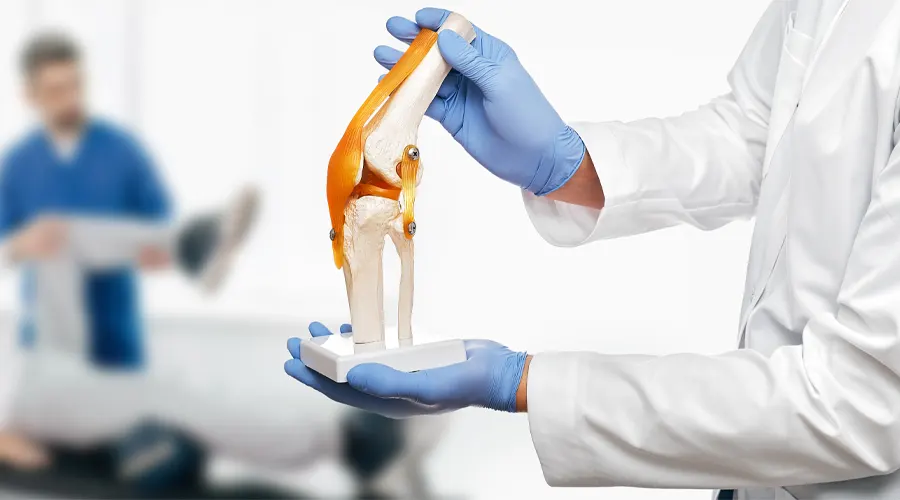
A joint is a place or area where two bones meet in the body and are capable of producing motion as well as affording support.
It is mainly comprised of cartilage and synovial fluids, ligaments, and tendons that help in a smooth and efficient movement without experiencing any kind of pain.
Common Joint Problems

Joint problems are rather common and nearly all individuals will face them at some point in their existence. Some of the common complaints are:
- Arthritic conditions,
- inflammation,
- stiffness.
Arthritis can be described as a form of chronic ailment that mainly influences the bones, more so the joints with symptoms of soreness and stiffness thus arthritis management is important.
This is something that inflammation is good for when it comes to looking at an injury or an infection but the chronic swelling is harmful to the joint.
The inability to move or turn is one of the effects that arise from stiff muscles which normally occur from inactivity or overworking the muscles.
Importance of Joint Health

Maintenance of joints is crucial in the health and the ability of an individual to be able to move around as desired.
They enable us to go about our daily activities effortlessly; strolling, climbing stairs, or even participating in sporting activities.
Joint care is crucial as it minimizes the risks of injuries, the amount of pain that one feels, and the crowded nature of one’s life.
Tips for Improving Joint Health

Stay Active

Exercise is crucial for joint health. It plays a role in giving muscular support and improving flexibility as well as preventing stiffness.
Swimming, walking, doing yoga, and thus light joint-friendly exercises should be preferred. Swimming engages the entire body gently, walking is straightforward yet effective, and yoga enhances flexibility and stability.
Maintain A Healthy Weight
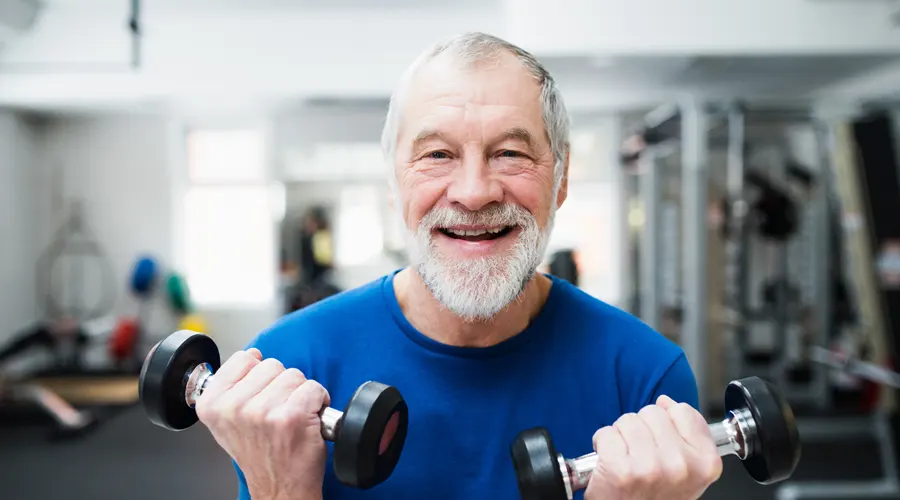
Being overweight exercised extra pressure on such areas as the
- knees
- hip, and
- lower back
due to weight-pulling force. Fatness increases this stress and causes joint issues; thus maintaining a good weight is the best Stress reduction technique.
Some useful recommendations worth mentioning include the need to follow the right diet and consume as many calories as you practically can, daily joint-friendly exercises, and other such lessons.
Eat A Balanced Diet

The presence of nutrients in one’s diet can also help in joint health. Consuming foods rich in omega 3s like salmon, walnuts, and flax seeds having Omega-3 fatty acids benefits, can lessen joint pains due to the anti-inflammatory Omega-3 fatty acids benefits nature.
Such fruits and vegetables contain antioxidants that can also shield the joints from destruction. It, therefore, would be useful to integrate several meals that are friendly to the joints as this will help in the well-being of the body.
According to Robert McLaughlin II, MD Omega-3 fatty acids, particularly those found in fish oil, are critical for reducing joint inflammation. These fatty acids inhibit inflammatory processes, and I’ve observed remarkable outcomes in patients with chronic conditions who follow a regular supplementation regime.
Stay Hydrated
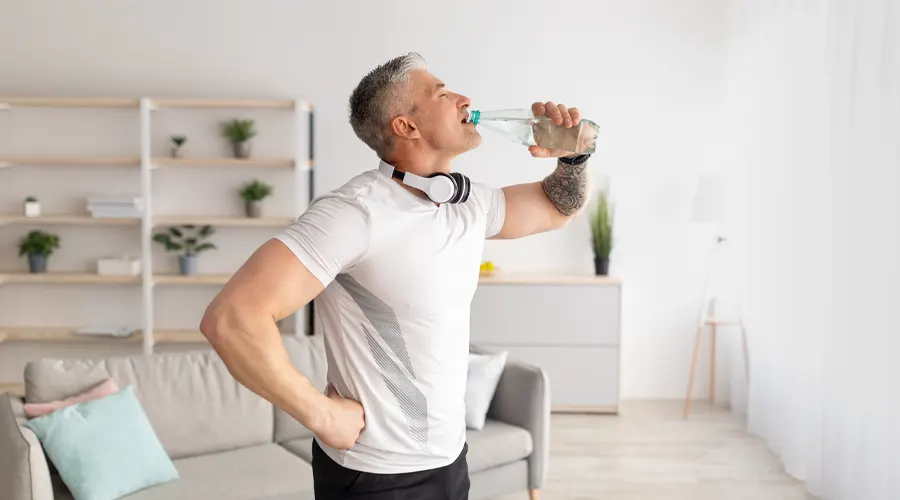
Water is essential in keeping the fluids in the joint spaces well-replenished; hence, it is important in the process.
Thus, synovial fluid present in the joints and responsible for their cushioning requires water to keep performing its functions.
It is highly recommended that one should be able to take at least eight glasses of water a day to maintain good health of bones and joints.
Supplement Wisely
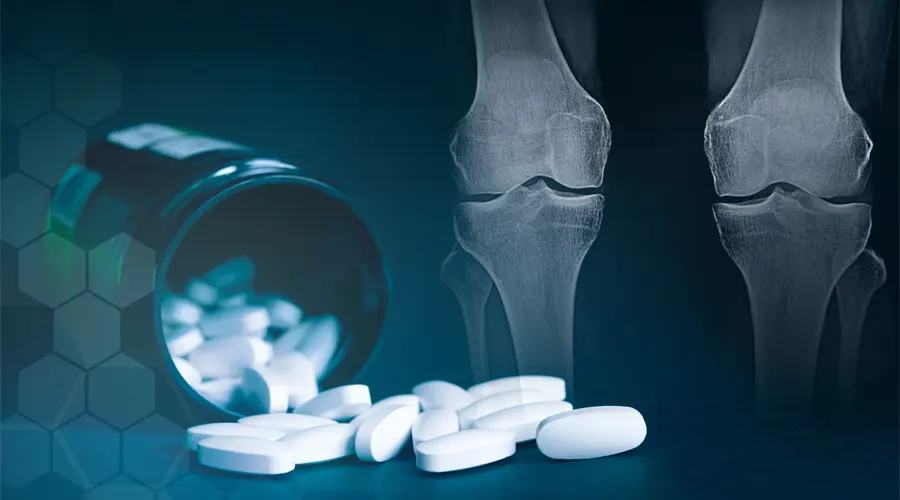
Some supplements can improve the amount of health in joints. Some of the most chosen compounds that, it is claimed to ease pain and enhance joint flexibility include Glucosamine and chondroitin supplements and methylsulfonylmethane (MSM).
Yet, it is always wise to seek advice from a healthcare professional before incorporating any supplements.
Practice Good Posture

Focus on improving posture for joint health because improper positioning of the body is damaging to the joints. This will cause strain on your joints and if maintained for a long time it will cause you some pain.
Specific recommendations: Self-assess good posture for joint health, keep shoulders tension-free, balance body weight, and sit upright when possible. One can go about his/her daily activities in a way that will highly benefit the joint.
Lifestyle Changes For Joint Health

Manage Stress

Both inflammation and muscle tension are commonly worsened by stress, hence its effect on the joints of the human body is harmful.
Stress reduction techniques and management measures should also be brought into the daily working plan to minimize joint pain.
Some of the ways how to reduce stress and or have a relaxing effect include practicing meditation, deep breathing exercises, and doing hobbies.
Avoid Overuse Of Joints
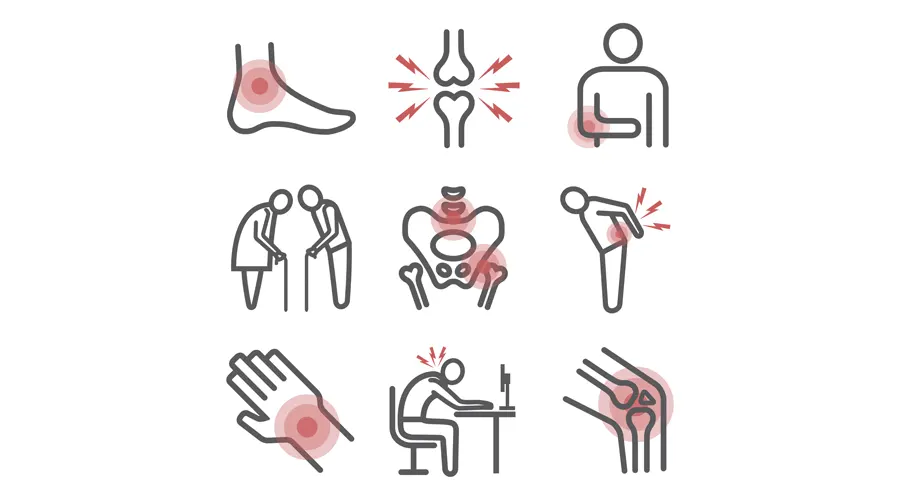
Joint arthritis results from a disease that is characterized by regularly overloading joints and joint arthritis management is important since they are the areas that are usually affected most because pain and stiffness tend to set in with damage caused by use.
Young people in particular need to remember that the joints must be given some time to rest after the vigorous exercises have been done.
Include rest days in your workout schedule and listen to your body’s signals to avoid overuse injuries.
Stay Warm
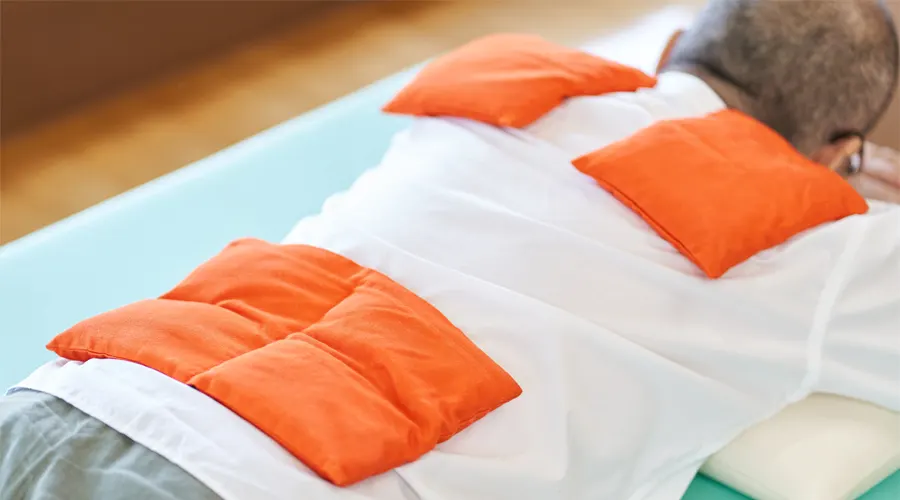
Warmth helps reduce joint pain and stiffness because it enhances the circulation of blood and the relaxation of muscles.
Applying heating pads, bathing in warm water, or applying a warm compress on a particular part of the body gives relief as well as eases joints’ movements.
Professional Treatments and Therapies
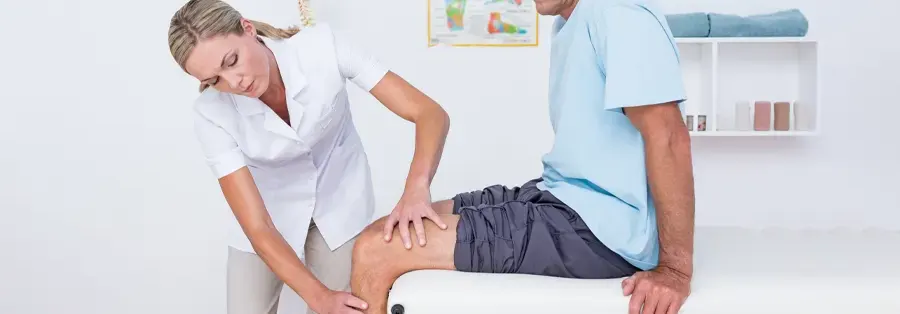
Physical Therapy For Joints

It is often possible to obtain good results from physical therapy for joints one has joint issues. It is a particular set of joint-friendly exercises and procedures that are used to develop the function, flexibility, and strength of the joints.
A physical therapist can suggest a plan based on your situation and apply it to enhance your joint health.
One example that stands out involved a professional dancer who came to me with recurring knee pain caused by early stage osteoarthritis. She was struggling to continue her career due to limited mobility and constant discomfort. Drawing on my experience with elite athletes and dancers, I developed a comprehensive rehabilitation plan that combined physical therapy with Pilates-based strengthening exercises and education on joint preservation techniques. Within months, she regained her full range of motion, reduced her pain significantly, and was able to return to performing at a high level. This case demonstrates how a multidisciplinary approach, underpinned by years of expertise, can achieve remarkable results in joint health and overall quality of life.
Alternative Joint Treatment Therapies
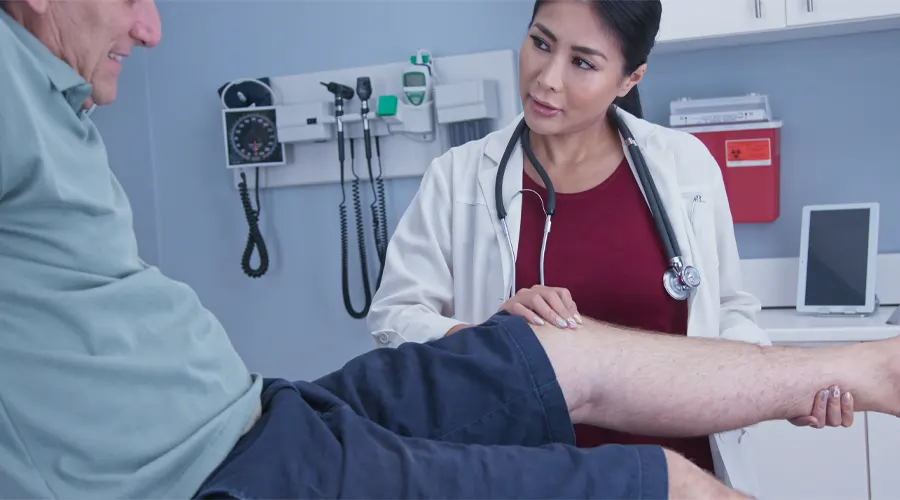
Other procedures or alternative joint treatment therapies will assist in joint health and these include; Acupuncture, Massage, and Chiropractic.
First, traditional Chinese medicine is characterized by the insertion into the body of thin needles at certain points aimed at painless treatment and cures.
It is known that massages cause some muscle relaxation, reduce stiffness, and increase blood circulation; while chiropractics is based on the relevance of functionality of the spine column and the joints of the body.
JointXL Plus Supplement

JointXL Plus is a capsule aimed at joint health support. It possesses a combination of compounds that may have an anti-inflammatory effect on the joints, and subsequently eliminate pain.
It is highly recommended that before one takes any supplement the doctor should first be consulted to get a go-ahead if indeed the supplement is good for the person’s health.
FAQs
What is joint health, and why is it important?
Joint health refers to the condition and functionality of the joints in your body. Maintaining healthy joints is crucial for mobility, performing daily activities, and overall quality of life. Poor joint health can lead to pain, stiffness, and reduced mobility.
What are the common problems associated with joints?
Common joint problems include arthritis, inflammation, and stiffness. These issues can cause pain, reduce mobility, and affect your overall well-being.
How can I improve my joint health through exercise?
Regular exercise can enhance joint health by strengthening the muscles around the joints, improving flexibility, and reducing stiffness. Activities like swimming, walking, and yoga are particularly beneficial for joints.
Why is maintaining a healthy weight important for joint health?
Being overweight places additional stress on joints, particularly the knees, hips, and lower back, leading to joint pain and other issues. Maintaining a healthy weight reduces this stress and supports overall joint health.
What role does diet play in joint health?
A balanced diet rich in omega-3 fatty acids, antioxidants, and other nutrients can help reduce inflammation and protect joint health. Foods like salmon, walnuts, and flax seeds are particularly beneficial.
How does staying hydrated benefit joint health?
Staying hydrated is essential for maintaining the synovial fluid in your joints, which acts as a lubricant and cushion. Drinking at least eight glasses of water a day helps keep your joints functioning properly.
What supplements can support joint health?
Supplements like glucosamine, chondroitin, and methylsulfonylmethane (MSM) are often recommended for joint health. However, it’s important to consult a healthcare professional before starting any new supplement regimen.
How can posture affect joint health?
Good posture is crucial for joint health as it prevents unnecessary strain on the joints. Poor posture can lead to joint pain and stiffness. Maintaining proper body alignment helps reduce joint stress and discomfort.
What lifestyle changes can improve joint health?
Lifestyle changes such as regular exercise, maintaining a healthy weight, eating a balanced diet, staying hydrated, managing stress, and avoiding overuse of joints can significantly improve joint health.
What professional treatments are available for joint health?
Professional treatments for joint health include physical therapy, acupuncture, massage, and chiropractic care. These therapies can help reduce pain, improve joint function, and enhance overall mobility. Consulting a healthcare professional can help you determine the best treatment plan for your needs.
Conclusion
In conclusion, one can state that the health and function of joints are critical to people’s health and ability to move.
With regular exercise, the right weight, a balanced diet, enough water, proper nutrients, correct supplement use, and good posture, you can boost joint health and quality of life.
Moreover, the observed quantity and quality improvements can be enhanced by the implementation of proper stress reduction techniques exercise regulation, prohibition of joint overloading, and heat preservation.
For specific relations of a joint nature, It’s beneficial to seek out specialized treatments such as physical therapy for joints and other types of therapies as well. Don’t miss out on exploring the benefits of the JointXL Plus supplement for additional support.
It’s important to act now and do all you can to enhance the health of your joints to achieve pain-free living and engage in activities easily.
If you want to get advice and recommendations that will be adapted to your particular case and which can help to develop an effective treatment plan that will promote the improvement of joint condition, it is recommended to seek help from healthcare professionals.


